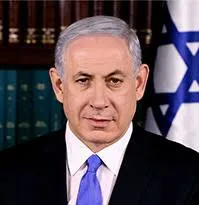Benjamin Netanyahu’s response, and the humanitarian situation in Gaza collectively illustrate the complexities and tensions surrounding the Israel-Hamas conflict and efforts to reach a cease-fire agreement.

Background of the Resolution:
The United Nations Security Council passed a resolution calling for an immediate cease-fire in Gaza during the Muslim holy month of Ramadan, which lasts for about two weeks. This resolution also demanded the release of remaining hostages held captive since the October 7 terror attack by Hamas.
U.S. Abstention and Benjamin Netanyahu’s Response:
The United States abstained from the vote, deviating from its usual stance of vetoing such resolutions concerning Israel-Hamas conflicts. Israeli Prime Minister Benjamin Netanyahu’s office expressed concern over this decision, fearing that it could undermine the war effort and the efforts to secure the release of Israeli hostages. Netanyahu had made it clear that he wouldn’t send a delegation to discuss military plans in Rafah without U.S. support.
Impact on Gaza and Criticism of Israel:
The situation in Gaza, particularly in the city of Rafah near Egypt’s border, has worsened amid the conflict. Over one million displaced Palestinians have sought refuge in Rafah, highlighting the humanitarian crisis. The Biden administration has voiced criticism of Netanyahu’s government, emphasizing the need to explore alternatives to ground operations in Rafah while still supporting Israel’s right to defend itself.
Cancellation of the Delegation and Disappointment from the U.S.:
Following the U.S. abstention, Netanyahu decided not to send a delegation to Washington, D.C. This move reflects the tension surrounding the cease-fire vote and its implications for the ongoing conflict. White House spokesman John Kirby expressed disappointment over the cancellation, stressing the importance of discussing alternatives to ground operations in Rafah.